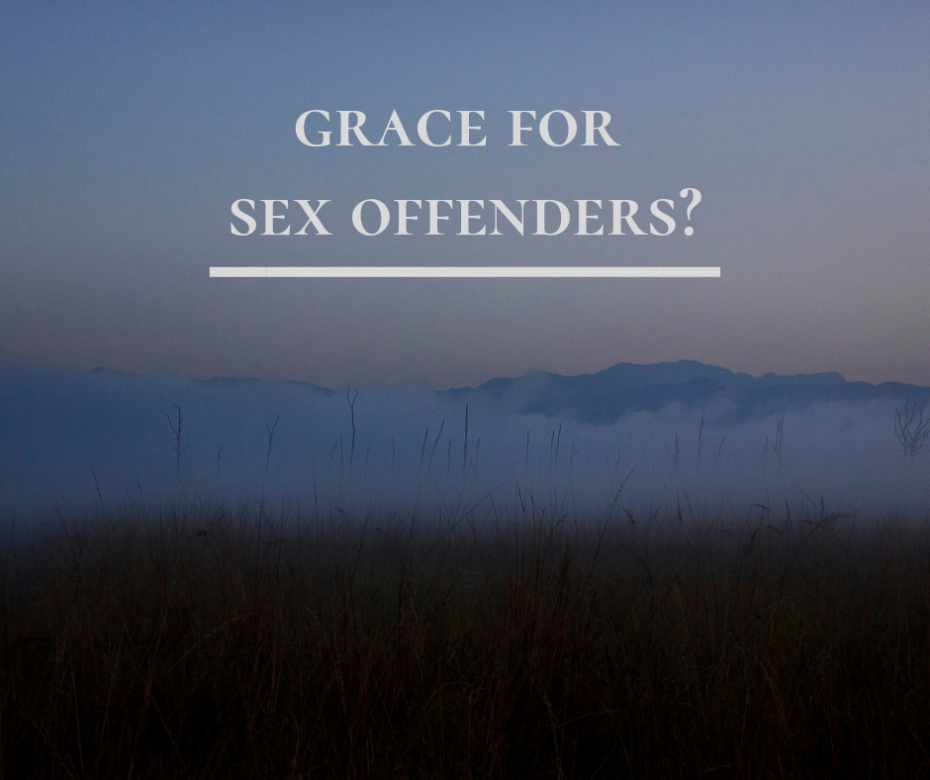Dear Shawn,
I read with interest your article on “No More Scarlet Letters.” My question is why authors like you refuse to address, and why churches are slow to forgive, restore, and embrace sex offenders? [He gives examples of churches excluding sex offenders.]
Dear Reader,
Thank you for your letter. I think grace can, and should, be shown to everyone, even those labelled “sex offenders.” There are no boundaries, no outer limits. Grace is greater than all sin. Sadly, most churches do not preach, or practice, grace, so your stories do not at all surprise me. Most churches know only law. And law condemns; it cannot restore. Grace restores. Anyone who falls should be restored to the fellowship of the church (Gal 6:1).
However, not everyone should necessarily be restored to their previous position in the church. Some sins disqualify you for service. For example, I think of Paul’s admonition that elders be the husband of one wife (1 Tim 3:2). If he becomes the husband of two wives, or three, or four, he disqualifies himself from that service.
From the other side, I think someone who has been a sex offender, especially one involved with children, should watch himself (Gal 6:1). He should heed Paul’s warning to “make not provision for the flesh, to fulfill the lusts thereof” (Rom 13:14) and not put himself in the position to fall again. And he should have the humility to “obey and submit” to the elders of the local assembly (Heb 13:17), and accept the restrictions they may place on his service, including the injunction never to work with children again. Those restrictions can be expressions of grace in two ways. First, accepting the restrictions can be a demonstration of grace by the offender to the community. It’s a way of showing remorse and a desire to live differently. Second, giving those restrictions can be a demonstration of grace by the community to the offender, in that they are seeking to restore him to fellowship. That might be frustrating if the offender wants to do whatever he wants to do. But grace is not a license to do whatever you want. It’s a license to be holy. And being holy often involves submitting your will to the greater good of the community.
Warmly,
Shawn Lazar


